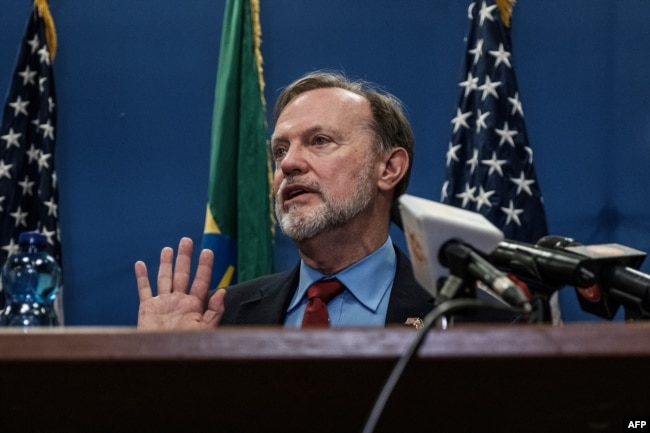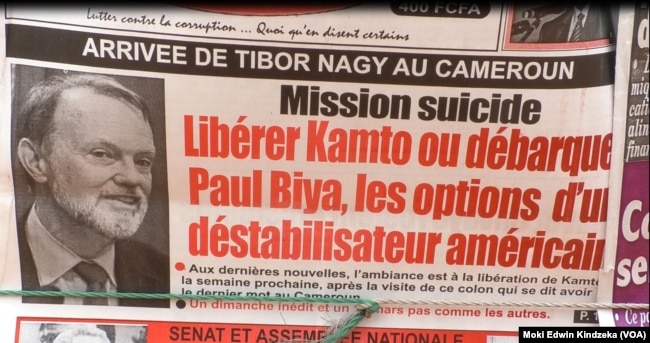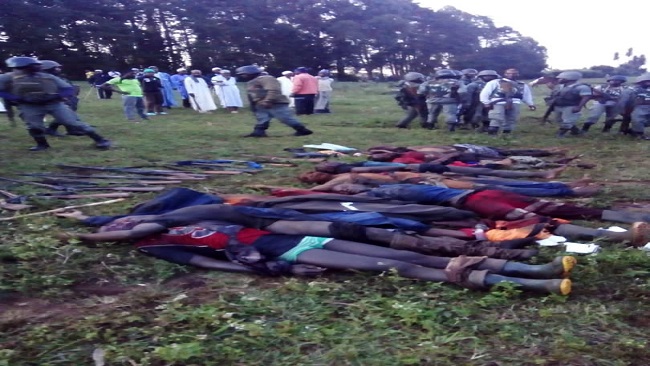19, March 2019
Death toll in Mozambique cyclone could surpass 1,000 0
The number of people killed in a powerful storm and preceding floods in Mozambique could exceed 1,000, the president says, putting the potential death toll greatly more than current figures.
Only 84 deaths have been confirmed so far in Mozambique as a result of Cyclone Idai, which has also left a trail of death and destruction across Zimbabwe and Malawi, with vast areas of land flooded, roads destroyed and communication wiped out.
Speaking on Radio Mocambique, President Filipe Nyusi said he had flown over the affected region, where two rivers had overflowed. Villages had disappeared, he said, and bodies were floating in the water.
“Everything indicates that we can register more than one thousand deaths,” he said.
The cyclone has also killed 89 people in Zimbabwe, an official said on Monday, while the death toll in Malawi from heavy rains and flooding stood at 56 as of last week. No new numbers had been released following the cyclone’s arrival in the country.
Caroline Haga, a senior International Federation of the Red Cross official who is in Beira, said the situation could be far worse in the surrounding areas, which remained completely cut off by road and where houses were not as sturdy.
Nyusi flew over areas that were otherwise accessible, and some of which had been hit by flooding before Cyclone Idai.
Rescue effort
In Beira, Mozambique’s fourth-largest city and home to 500,000 people, a large dam had burst, further complicating rescue efforts.
Large swathes of land were completely submerged, and in some streets people waded through knee-high water around piles of mangled metal and other debris.
In the early hours of Monday morning, rescuers launched dinghies onto chest-high waters, navigating through reeds and trees – where some people perched on branches to escape the water – to rescue those trapped by the flooding.
Meanwhile, rescuers were struggling to reach people in Zimbabwe’s Chimanimani district, cut off from the rest of the country by torrential rains and winds of up to 170 kilometers per hour that swept away roads, homes and bridges and knocked out power and communication lines.
Zimbabwean information ministry official Nick Mangwana told Reuters the number of confirmed deaths throughout the country was now 89. The body count is expected to rise.

Many people had been sleeping in the mountains since Friday, after their homes were flattened by rock falls and mudslides or washed away by torrential rains.
The Harare government has declared a state of disaster in areas affected by the storm. Zimbabwe, a country of 15 million people, was already suffering a severe drought that has wilted crops.
Southeastern Africa gateway
Beira, which sits at the mouth of the Pungwe River, is also home to Mozambique’s second-largest port, serving as gateway for imports to landlocked countries in southeast Africa.
The director of a company that jointly manages the port, Cornelder, based in the Netherlands, said the port had been closed since last Wednesday but would hopefully resume operations on Tuesday.
Two cranes would be working and the company had two large generators and enough fuel for now, though damage to access routes and roads further inland was more likely to cause a problem, said the director, who asked not to be named.
The fuel pipeline running from Beira to Zimbabwe was believed to be intact, the person said, though communication was still very patchy and therefore the situation at the port remained uncertain.
In February 2000, Cyclone Eline hit Mozambique when it was already devastated by its worst floods in three decades. It killed 350 people and made 650,000 homeless across southern Africa, also hitting Zimbabwe.
(Source: Reuters)
































19, March 2019
Southern Cameroons Crisis: American diplomat talks straight to Biya 0
The U.S. Assistant Secretary of State for African Affairs, Tibor Nagy, yesterday in Yaounde had a straight talk with the country’s president, Paul Biya, on the Southern Cameroons crisis which he qualified as “unnecessary”.
During the meeting with Mr. Biya, the American diplomat urged the president to embrace the frank and inclusive dialogue proposed by the international community, adding that Southern Cameroonians only wanted to be considered as normal citizens of Cameroon and that they would never accept the second-class citizenship the country had imposed on them.
He said that the US administration was closely watching events in Cameroon, pointing out that only dialogue could put an end to the crisis in the country. Mr. Nagy also stressed that the route taken by the government to end the crisis was unnecessary and that the loss of human life and property was a clear indication of a disproportionate use of force by the government.
Mr. Nagy also said America would encourage the country to pursue other forms of government that might reduce tensions in the country, adding that Donald Trump’s administration was ready and willing to lend a hand in the development of a truly federal system in Cameroon, a message that had also been sent to the Cameroon government by the Canadian embassy in Yaounde.
Canada, it should be underscored, has significant experience in the handling of minority issues and is very willing to bring that experience to Cameroon so as to enable the two linguistic groups that make up the country to live in peace.
Mr. Nagy used the occasion to remind Mr. Biya that Cameroon was a major American ally in the region, stressing that chaos in Cameroon could spill over to other countries and this could result in disorder that might disrupt life in the entire region.
He hailed Cameroon’s economic potential, adding that the country was blessed with abundant human and natural resources that could be used to bring about shared prosperity and wealth, but for this to happen, there must be peace and justice.
Speaking to journalists after his meeting with President Paul Biya, the American diplomat said diplomatic discussions were always confidential, but added that his discussion with Mr. Biya was frank and direct. A statement which has made sources close to the government to hold that Mr. Biya has been delivered a tough message which he has to take seriously or face destabilization from the frustrated American administration.
Mr. Nagy however said he appreciated Mr. Biya’s wisdom, adding that the United States and Cameroon had much in common and that he would like to bring many American investors to Cameroon so as to create opportunities for the country’s youths.
He said America wanted the best for Cameroon, stressing that he would like young Cameroonians to have the best jobs possible, but that would require peace in the country.
Asked about the statements he had made prior to his coming to Cameroon, Mr. Nagy said quotations could be interpreted in different ways and that he was happy the country’s press was still vibrant and that he was either an angel or a devil depending on the interpretation of his declarations.
It should be underscored that Mr. Nagy had made statements regarding the Southern Cameroons situation that cast the government of Cameroon in very bad light. He had called on the government to stop the killings, adding that only a global forum could definitively deal with the issue that was tearing the country apart.
The tough talking diplomat had struck fear in Yaounde and many government officials have been worried about America’s position regarding the Southern Cameroons crisis. Before arriving Cameroon, Mr. Nagy had said the Trump administration clearly felt that the Southern Cameroons crisis that had put the country in the spotlight for all the wrong reasons was an issue that required the international community’s attention as the government of Cameroon had clearly demonstrated that it was incapable of dealing with it using peaceful means..
Meanwhile, sources within Yaounde government say Mr. Nagy who had visited other African countries, was bearing a special message from many countries, including Canada and the United Kingdom who strongly believe that the Yaounde regime has crossed the red line.
“They are all scared of Americans. They know what America and its allies are capable of doing. They know the American diplomat is carrying a message from different nations and if the Yaounde government does not change its approach to this conflict, it might incur the wrath of the US,” our sources said.
“We know what Americans are capable of doing. If the government decides to ignore American advice on this, it runs the risk of dealing with a larger crisis. Government officials are scared that America might arm Southern Cameroonian fighters who are still hunting rifles. If America comes to help Southern Cameroonians, their language might change from peaceful negotiation to regime change and this will imply more chaos and panic in the region,” our sources pointed out.
“It is not Mr. Nagy that is talking. It is Mr. Trump. President Biya knows that and he knows with more oil being discovered in the Southwest region, Americans might come in to get a fair share. The government will surely change its language and that will mean a return to normalcy in the two English-speaking regions of the country. But some hawks in the region are still beating the drums of war as they are making the most of the situation. Many of them have become rich overnight and would want the chaos to continue,” our sources said.
“Americans are not happy that an American missionary was killed in Bamenda as a result of this conflict. The message to Mr. Biya could be clear, but there are undertones which the government must seek to understand. Americans hardly forgive and they will surely want to take their revenge if the government does not listen. Americans are mad at the Yaounde government for the humiliation they have inflicted on the American ambassador after he advised Mr. Biya not to run in the last presidential election which he clearly lost,” our sources pointed out.
Meanwhile another source in Yaounde has indicated that there is panic in Yaounde and that Mr. Biya has urged his collaborators to change their language vis-à-vis Southern Cameroonians.
The source, which elected anonymity, said the American position regarding the conflict was being taken seriously as it has the backing of Canada and the United Kingdom.
While Mr. Nagy was in Yaounde, the government started speaking a different language. The first to set the tone was the country’s defense minister, Joseph Beti Assomo, a staunch supporter of war and a huge beneficiary of the chaos playing out in Southern Cameroons.
Mr. Assomo, on Monday, 18 March 2019, urged army soldiers to stop terrorizing civilians, a clear indication that the message from America and its allies had gone through.
Mr. Assomo who was in Buea to install some military officials; all of whom were from his region, advised soldiers to collaborate with the population with a view to normalizing things in the troubled region.
But Assomo’s message seems to be falling on deaf ears, as rampaging soldiers got to work in the northwest region on Tuesday, killing people, burning homes and bikes in Ndop. In other parts of the two English-speaking regions, soldiers are still intimidating civilians and this implies that the government is simply paying lip service to the notion of peace in the region.
By Kingsley Betek and Linda Embi in Yaounde